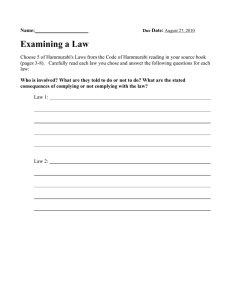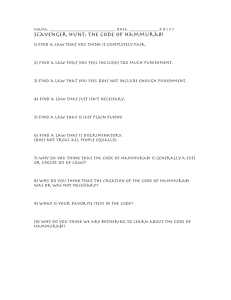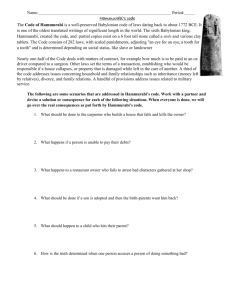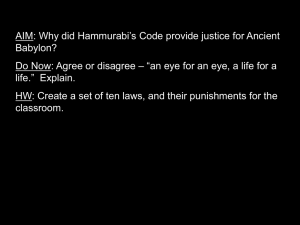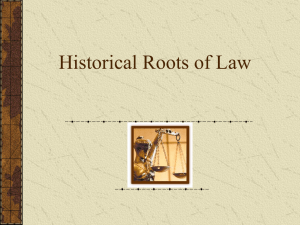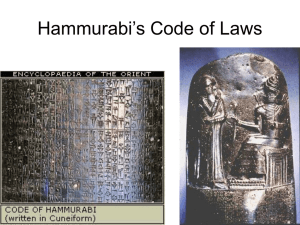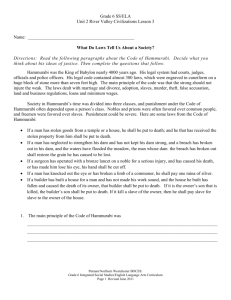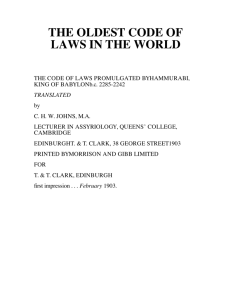The Code of Hammurabi
advertisement
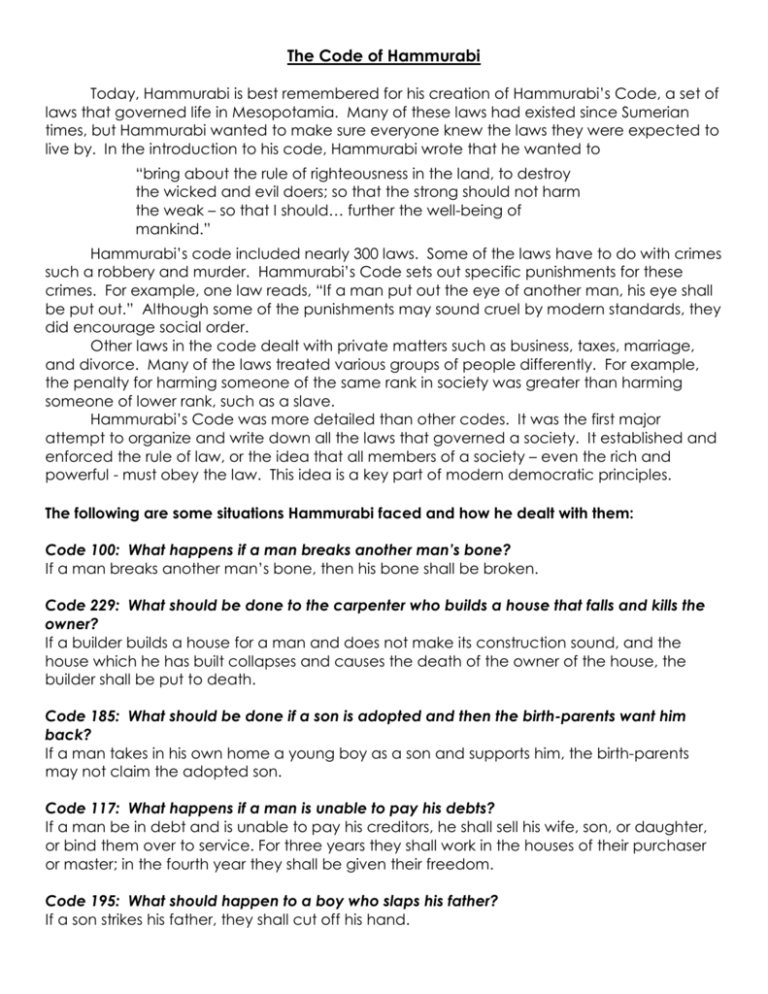
The Code of Hammurabi Today, Hammurabi is best remembered for his creation of Hammurabi’s Code, a set of laws that governed life in Mesopotamia. Many of these laws had existed since Sumerian times, but Hammurabi wanted to make sure everyone knew the laws they were expected to live by. In the introduction to his code, Hammurabi wrote that he wanted to “bring about the rule of righteousness in the land, to destroy the wicked and evil doers; so that the strong should not harm the weak – so that I should… further the well-being of mankind.” Hammurabi’s code included nearly 300 laws. Some of the laws have to do with crimes such a robbery and murder. Hammurabi’s Code sets out specific punishments for these crimes. For example, one law reads, “If a man put out the eye of another man, his eye shall be put out.” Although some of the punishments may sound cruel by modern standards, they did encourage social order. Other laws in the code dealt with private matters such as business, taxes, marriage, and divorce. Many of the laws treated various groups of people differently. For example, the penalty for harming someone of the same rank in society was greater than harming someone of lower rank, such as a slave. Hammurabi’s Code was more detailed than other codes. It was the first major attempt to organize and write down all the laws that governed a society. It established and enforced the rule of law, or the idea that all members of a society – even the rich and powerful - must obey the law. This idea is a key part of modern democratic principles. The following are some situations Hammurabi faced and how he dealt with them: Code 100: What happens if a man breaks another man’s bone? If a man breaks another man’s bone, then his bone shall be broken. Code 229: What should be done to the carpenter who builds a house that falls and kills the owner? If a builder builds a house for a man and does not make its construction sound, and the house which he has built collapses and causes the death of the owner of the house, the builder shall be put to death. Code 185: What should be done if a son is adopted and then the birth-parents want him back? If a man takes in his own home a young boy as a son and supports him, the birth-parents may not claim the adopted son. Code 117: What happens if a man is unable to pay his debts? If a man be in debt and is unable to pay his creditors, he shall sell his wife, son, or daughter, or bind them over to service. For three years they shall work in the houses of their purchaser or master; in the fourth year they shall be given their freedom. Code 195: What should happen to a boy who slaps his father? If a son strikes his father, they shall cut off his hand.
